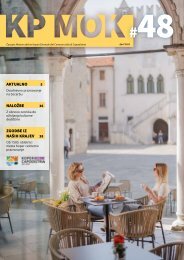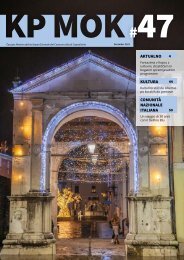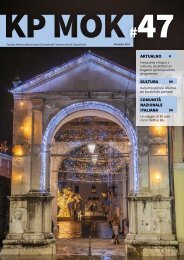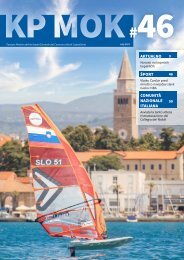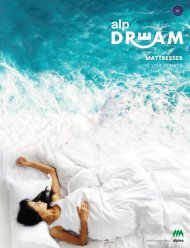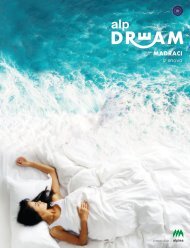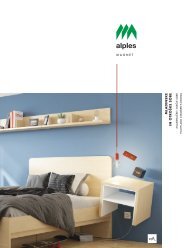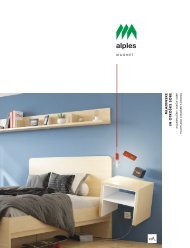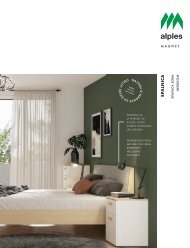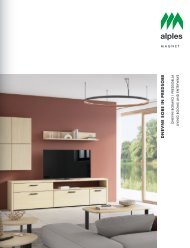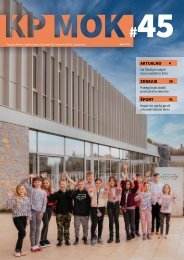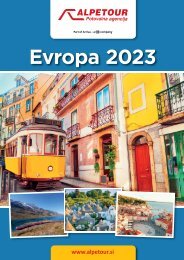EUSAIR - Final Report
You also want an ePaper? Increase the reach of your titles
YUMPU automatically turns print PDFs into web optimized ePapers that Google loves.
THERE’S NO PLANET B!<br />
Lučka Kajfež Bogataj: As a professor at the University, it’s a my privilege to<br />
work with young people. They are actually my inspiration. When you work as<br />
a professor, you never get old – and you’re more open to accept changes.<br />
So this is number one inspiration. (…) It’s fantastic how much they know.<br />
My second inspiration is diversity: not just diversity in nature, but also diversity<br />
in people. It’s wonderful to meet dfferent cultures, it’s wonderful to learn from<br />
them – and it’s wonderful to cooperate.<br />
Boštjan Videmšek: My book is a kind of manual: it offers solutions. After all<br />
these years of covering conflicts and refugee issues, I have no more capacity for<br />
human tragedy. So I’ve decided as a journalist, as a human being, to give something<br />
back. I now believe in something called “constructive journalism”. And I’m<br />
trying to use all my experience and knowledge to find solutions. Going around<br />
with photographer Matjaž Krivic, a super optimist, I was infected by his virus of<br />
naivity, and finding people who were fighting the climate crisis with solutions<br />
was super inspiring. They don’t let you to say “It’s impossible” – because they<br />
show you it is possible.<br />
Lučka Kajfež Bogataj: We’re seeing less mass tourism in our Mediterranean<br />
area. People understand that they can make their destination more profitable<br />
not by adding more and more people, but adding more quality. This is something<br />
I find quite advanced. (…)<br />
Boštjan Videmšek: The Greek island of Tilos is absolute proof that the future<br />
can be different. It’s a perfect mixture of the development of technology and a<br />
change in the social paradigm. First, a young doctor came to the island and<br />
started everything from grassroots. He created very strong social tissue. It then<br />
became the first island in the Mediterranean to be self-sustainable, reliant only<br />
on renewable energy: photovoltaic, solar and wind. They were never shy to point<br />
out that this is also a business model.<br />
Lučka Kajfež Bogataj: We live in quite complicated times. This covid-situation<br />
was not wasted time. My advice is innovation. But technology is not everything.<br />
We need new institutions. In my view this is extremely important, because even<br />
on the level of the United Nations, these institutions are old. They were made<br />
for different problems in different times. Even universities: have they followed the<br />
changes over time? Today, my students can get all information: but they desperately<br />
need a professor to tell them what is fake news, what is actually useful and<br />
what is garbage. Parliament – the same thing. So we need new institutions, new<br />
infrastructure. Let’s make them green. Most important of all: we have to invent<br />
new life-styles. GDP is not enough, GDP is old, so last millennium. There are new<br />
measures of success.<br />
Boštjan Videmšek: An agenda fully based in the future, not the past. Young<br />
people will be the core victims of the climate crisis. Give them the chance to lead<br />
now. To make a huge step forward, we need a smooth and fast transition from<br />
reflex to reflection. And I don’t see this potential in politics, because the work of<br />
politics is based on a strategy of the reptile part of our brain – reflex. We need<br />
reflection – and this belongs to young people.<br />
<strong>Final</strong> <strong>Report</strong> | 57





